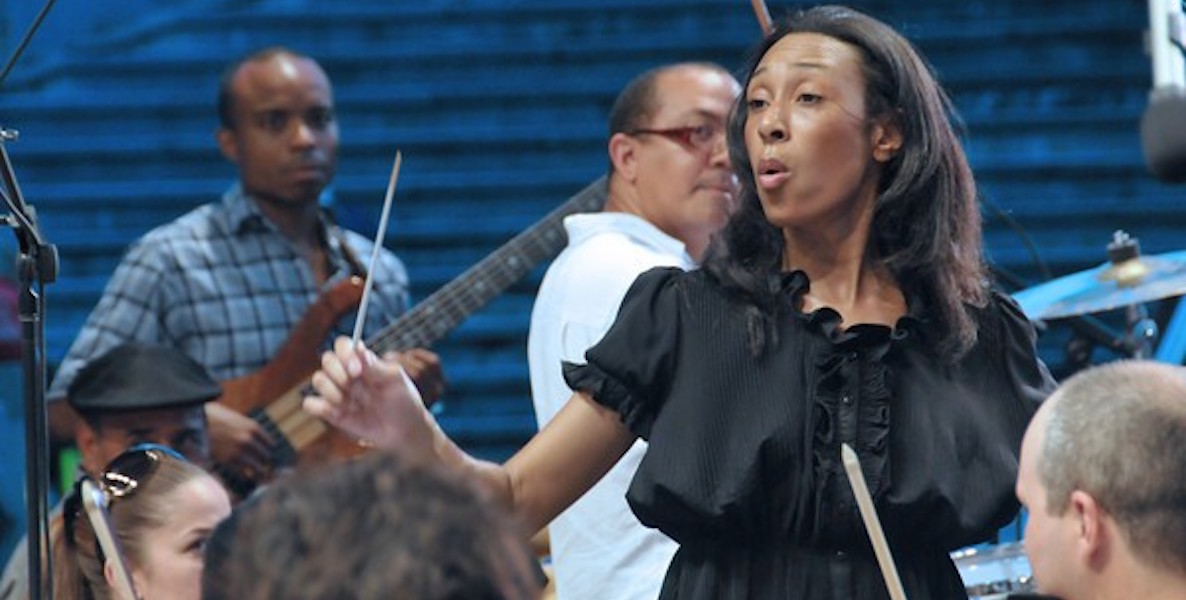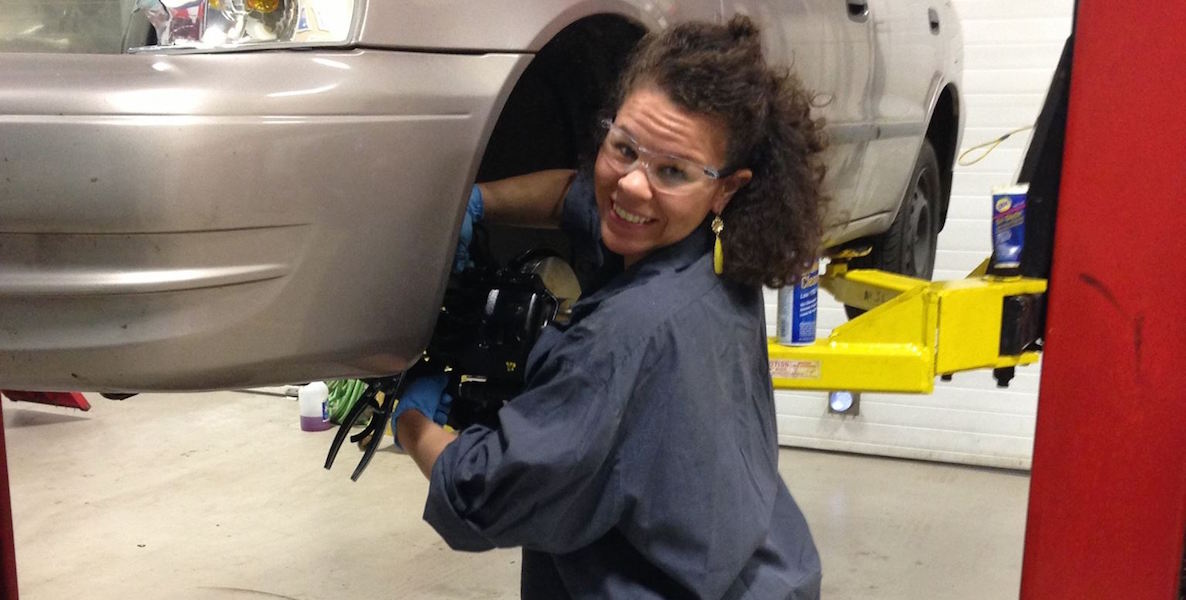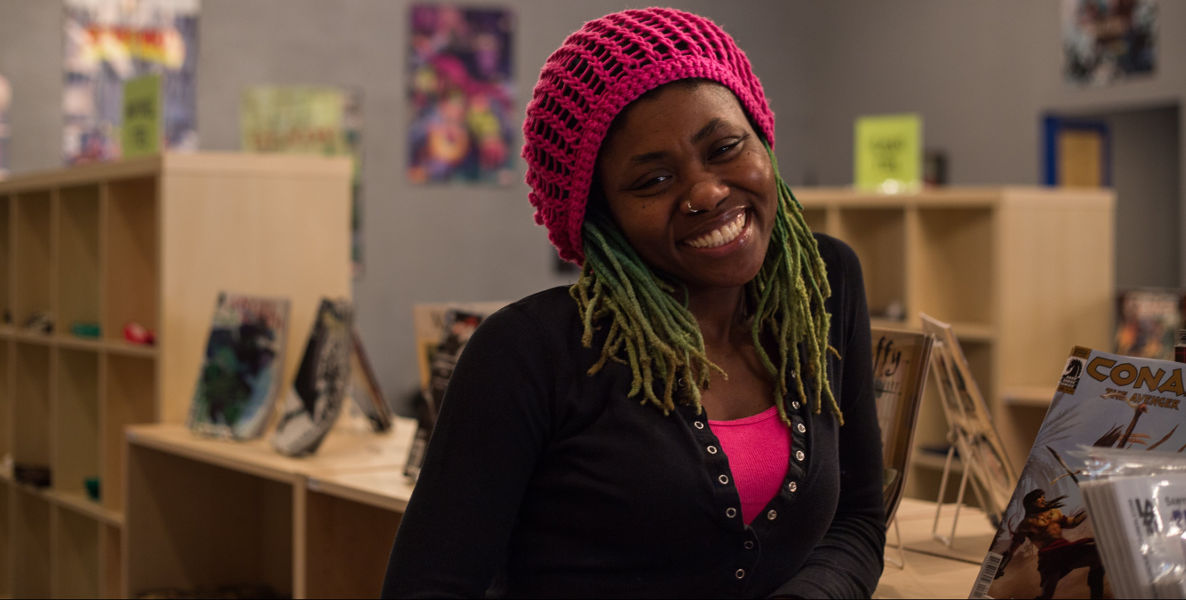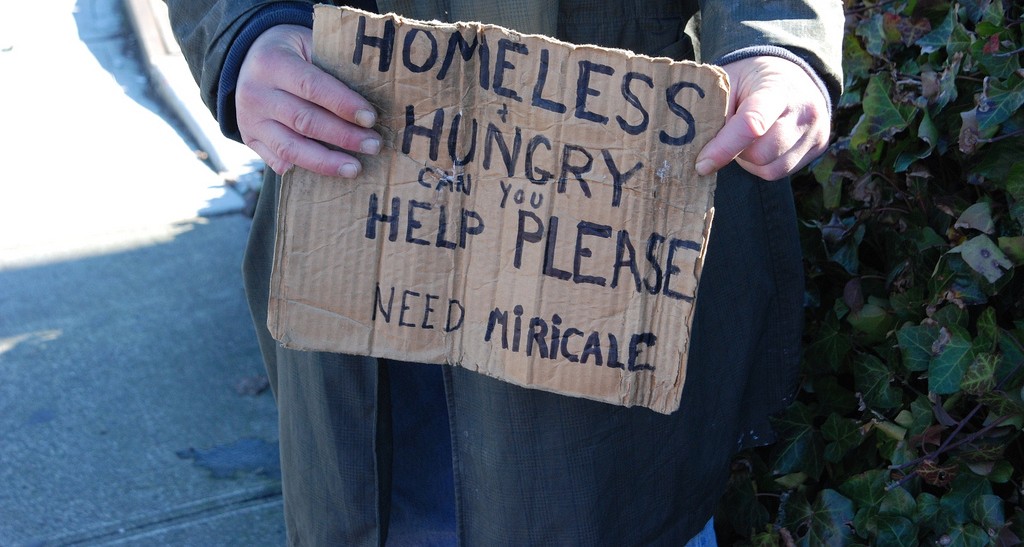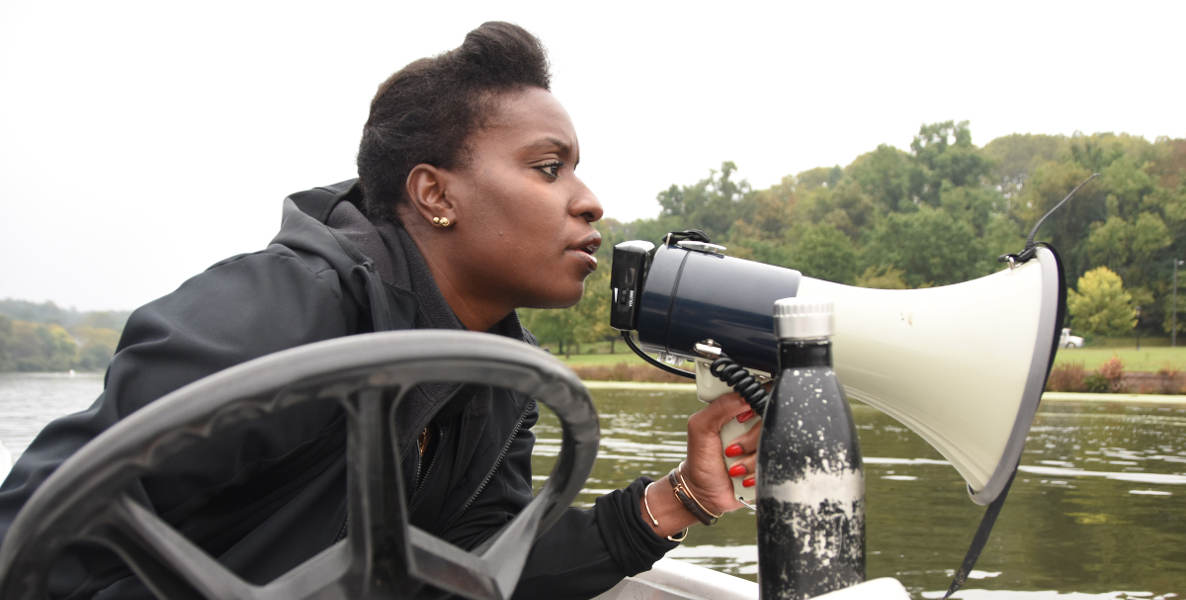When the engine broke in August on the launch boat Brannon Johnson uses to ride alongside her rowing students, she didn’t let it stop her. Instead of canceling her classes because she couldn’t drop $5,000 on the new engine, Johnson rowed herself, alongside her clients on the Schuylkill River, from 5:30am to 8pm everyday until last week, when it finally got replaced.
When Johnson, 33, was the only Black person on Boathouse Row as a West Philadelphia high school student, she didn’t let it stop her. She instead rowed her talent to a full-ride at University of Texas.
When even her clients questioned her credibility as a rowing teacher because of the color of her skin, she didn’t let it stop her. Instead, she grew her community of Brannon Loraé Johnson Community Rowing to over 57 Philadelphians new to the mostly closed world of rowing.
And when over 15 people approached her saying they wanted to get on the water but couldn’t afford it, she didn’t let it stop them. She problem-solved: Those 15 people don’t pay a penny, but instead do volunteer work to show their initiative.
To Brannon, it’s all part of a mission that has driven her since she was a teenager, looking for a way out of her rough circumstances.
“When I was young, my dad sat me down [at a race] and said ‘Brannon, I want you to look around,’” Johnson says. “I was 16 and I had just won Cities and colleges were coming, and I was the ‘Black girl who rows’ so my name was getting out there to people who wanted me. And he said ‘The difference between you and everyone else in this room, and your siblings and cousins, is that rowing is going to be your vehicle that will give you access, that’s going to be something they’ll never have. You need to be a bridge and break down these barriers and provide access for people like you to cross over.’”
“I wasn’t even really listening, I was probably thinking about boys,” Johnson adds. “But now, it’s something that’s really important. [Rowing has] given me such great access and we have these great stories of amazing things we’ve done. What keeps us together is I make us a family.“

To Brannon, Boathouse Row—and therefore rowing on the Schuylkill—has always felt like an exclusive club. Joining 10 houses along the river costs $400 to $650 per year; some houses also have a one-time joining fee for capital expenses ranging from $200 to $1,500. (Philly school students interested in rowing can join Philadelphia City Rowing, a free program funded by the rowing community; adults can try rowing for free on annual Row and Paddle Days.)
Brannon has broken through that barrier. She started teaching rowing—something she says she loves way more than competing in the sport—when she came back to Philly after college. And she saw her first real glimmer of the change she could bring to Boathouse Row. “I knew I could build something important, something relevant,” she says.
A couple years later, she opened her “Boathouse Without Walls,” located in front of St. Joseph University’s boathouse along Kelly Drive—just racks with her boats (her main purchases, she says, are boats and shoes).
Today, Johnson works 5 a.m. to 9 p.m., every day. She teaches up to 13 people in each class, teaching multiple classes at a time. Her “Learn to Row” course for adults is a 6-week long program that meets once a week and costs $180. People use this class as a stepping stone into a boathouse or just to learn how to row and have fun. So far, Brannon has taught 972 Philadelphians to row; around 60 have stayed with her and continue to row the BLJ Rowing Community, including several African Americans.
“We taught 900 plus people how to row, but I won’t feel like I’ve accomplished my goal and really given back until we reach 1,000 people,” Johnson added.
During the winter, Johnson’s community of rowers don’t stop: rowers join Johnson in Manayunk to practice on erg machines to keep up their fitness.
“I’m not against Boathouse Row,” Johnson says. “We’re just different. And the fact that [BLJ Community Rowing] is working is really awesome.”

For Johnson, being a Black woman on what she considers the mostly rich, white river is never far from her mind. In the refined tradition of rowing, yelling at a coach is never done. But she has been yelled at by rowers on several occasions, she says, because she’s Black. New students often question her ability when they first come to class, because they can’t believe their coach is Black. It isn’t until these students Google her and find her successes that they actually believe she knows what she’s doing.
“Racism is really what we’re up against,” Johnson says. “People don’t realize that the river runs through West Philly. So you have these super rich people coming from Chestnut Hill and the suburbs and rowing through the ‘hood. It’s in West Philadelphia and we don’t have access to any boats; it’s actually more accessible for us but we can’t we can’t buy memberships because we don’t have the means. And that’s a problem.”
Every business move Johnson makes is purposeful and intentional, she says. Her business is in a “growing period,” and is growing every day.
“We’re doing a really cool thing,” she says. “What sets us apart is we just really don’t give a shit.”
Corrections: An earlier version of this story incorrectly stated that the city owns the houses on the Schuylkill; the city owns the land, but often expensive upkeep of the houses falls to the members. It also stated that joining a club costs $1,000, and that inexperienced rowers are not welcome; actually, it costs between $400 and $650 per year, and most houses accept new rowers regularly.
Photos by Sabina Louise Pierce



